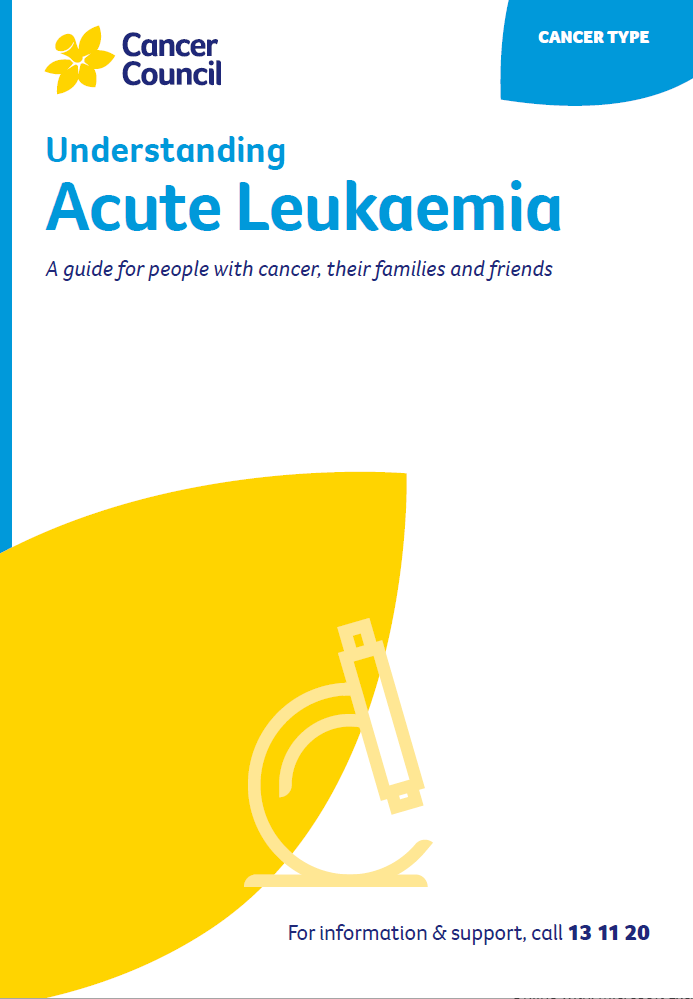- Home
- Acute myeloid leukaemia (AML)
- Treatment
- Chemotherapy
Chemotherapy for AML
Learn about the use of chemotherapy drugs to treat acute myeloid leukaemia and the phases involved in the treatment process.
Learn more about:
- Overview
- Phases of chemotherapy treatment for AML
- Side effects of chemotherapy
- Video: What is chemotherapy?
Overview
Chemotherapy uses drugs to kill leukaemia cells or slow their growth. Treatment protocols set out which drugs to have, how much and how often. You can find information about protocols at eviq.org.au, although your haematologist may need to tailor the drugs to your individual situation.
For AML, there are usually 2 phases of high-dose chemotherapy. Chemotherapy drugs are most commonly given as a liquid through a drip inserted into a vein (intravenous infusion). Some drugs can be given as tablets you swallow.
Phases of high-dose chemotherapy for AML
Chemotherapy for AML is usually given in 2 phases: induction and consolidation.
Induction chemotherapy |
Consolidation chemotherapy |
|
|
Side effects of chemotherapy
As well as killing leukaemia cells, the drugs may also damage healthy fast-growing cells, such as new blood cells or the cells in the mouth, stomach, hair and bowel.
This can cause side effects such as:
- hair loss
- high risk of infection
- mouth sores
- body aches
- nausea
- vomiting
- constipation
- diarrhoea
- skin and nail changes
- memory and concentration problems
- tiredness (fatigue).
For more on this, see Managing side effects and our general section on Chemotherapy.
→ READ MORE: Stem cell transplant for AML
Video: What is chemotherapy?
Watch this short video to learn more about chemotherapy.
Podcast: Managing Cancer Fatigue
Listen to more of our podcast for people affected by cancer
More resources
Dr Jonathan Sillar, Haematologist, Calvary Mater Newcastle (clinical review); Dr Scott Dunkley, Haematologist, Royal Prince Alfred Hospital and Chris O’Brien Lifehouse; Sharon Frazer, Consumer; Dr Robin Gasiorowski, Staff Specialist, Haematology, Concord Hospital; Prof Angela Hong, Radiation Oncologist, Chris O’Brien Lifehouse, and Clinical Professor, The University of Sydney; Yvonne King, 13 11 20 Consultant, Cancer Council NSW; Heather Mackay, Clinical Nurse Consultant – Haematology, Westmead Hospital; Katelin Mayer, Clinical Nurse Consultant, Cancer Outreach Team, Nelune Comprehensive Cancer Centre.
View the Cancer Council NSW editorial policy.
View all publications or call 13 11 20 for free printed copies.

